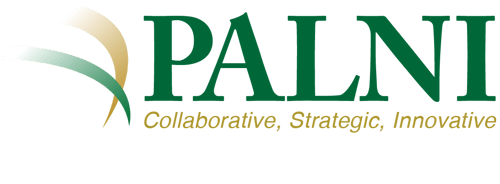Open Bibliographic Data Management Planning Grant
Update February 2022
Primary work to this point has been done by Kirsten Leonard and Noah Brubaker. We have three phases of the project that we had planned on doing consecutively, but because of the short time frame and the opportunity presented by major summits, we have started work on all three phases simultaneously. This early part of the project work has been to consult with other groups and stakeholders to get a clearer understanding of the scope of the problem to be solved. We have been lucky to find that there are many groups interested in this project.
1. Develop a broad group of stake holders in Indiana and from other library consortia that will be able to support carrying the work forward and produce a report on community needs for a bibliographic entity
Kirsten Leonard has met with the shared print community and presented on the goals of the project at the CCH Summit and the joint annual meeting of the Partnership for Shared Book Collections and the Rosemont cooperative. She is scheduled to meet with the ALI Board and the ALI members meeting. We will create our Indiana public library stakeholder group in the next month and we are working on a press release to bring awareness of the project to the wider library community. Kirsten is also working with an ICOLC group exploring principles, license terms, and goals for supporting a more open infrastructure. It has been evident that PALNI and Indiana are not alone in needing a more flexible, agile, and low-cost infrastructure for bib data.
2. Produce a Report on currently available bibliographic utilities, data sources, costs, use permissions, and extensibility
We’ve begun this work and have reached out to consultant Jeff Kosokoff to bring additional bandwidth and knowledge to the project. We will draft the contract after receiving the ok from ISL. We are also contracting with Ruth Szpunar to assist in logistics and use case gathering. Noah Brubaker and Kirsten Leonard are seeking and interviewing projects that are exploring a more open bib data infrastructure.
3. If a viable low-cost bibliographic utility with open use permissions does not exist, the project will develop a defined minimum viable product feature set, development plan and illustrative design wireframes, cost estimates, and governance and business structures, and possible integration into other open initiatives and infrastructure
Through the conversations at the Summit, we’ve identified two projects that could be extended or explored to serve the needs of small academic and public libraries, the POD project and the ReShare infrastructure. POD is being developed as a data backbone for the Ivy Plus Libraries Confederation to facilitate data-backed services–starting with discovery for interlibrary loan. It has the potential for broader applicability–both for more institutions and for more use cases. As part of our ARPA grant, PALNI will contract with Stanford to study the potential fit of POD for other types of libraries–both smaller academics and also publics–and additional use cases. A project contract with ReShare will be initiated to explore a lighter-weight database structure to increase scale and speed. We also continue to seek additional projects and investigations.
We met with State Librarian Jake Speer to discuss the work to date and explore how we might structure contracts to meet our deliverables in the context of these other projects.
